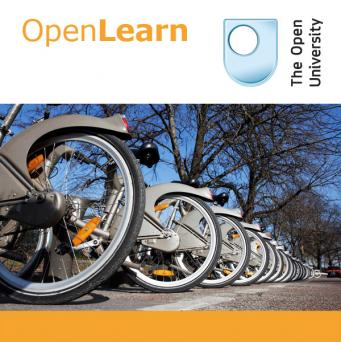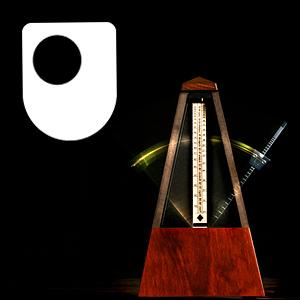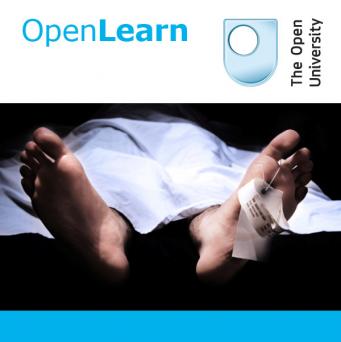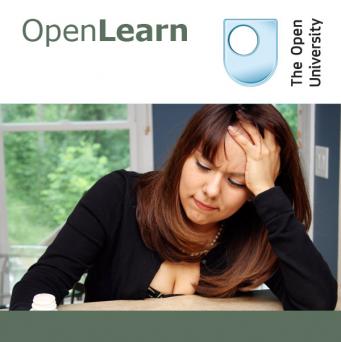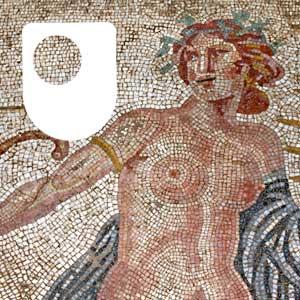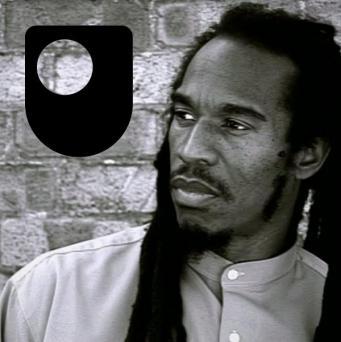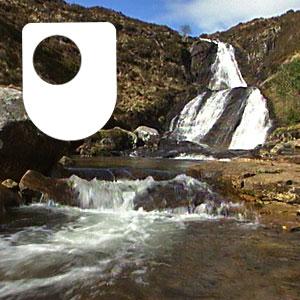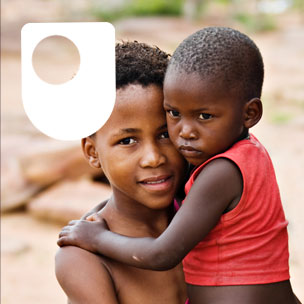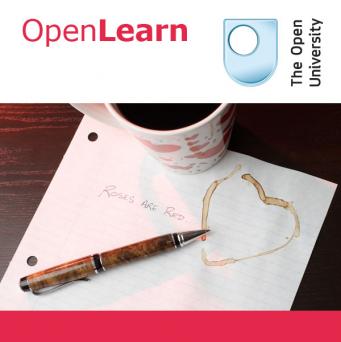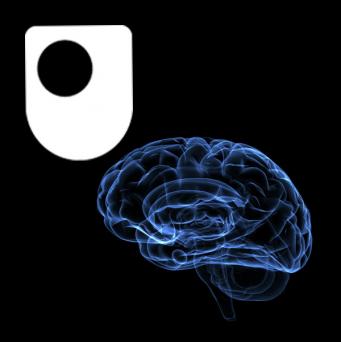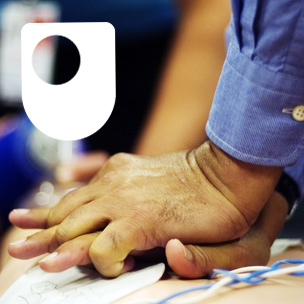The Open University
Human societies have to take urgent action to end their dependences on fossil fuels. We have to alter the whole path of our development and decision making in order to make our societies both environmentally adaptable and sustainable. This unit takes on the task of trying to chart some of the...
It has been called a 'Big Bang Machine', but what is the Large Hadron Collider and what do scientists hope it will discover? Presented by Robert Llewellyn, the three video tracks in this album address the science of collisions, the purpose of particle acceleration and the construction of the LHC...
This course focuses on two interlinked issues: the philosophical questions that arise in social science research, and research methods. Social inquiry attempts to take a scientific approach to explaining the complexity of everyday experiences, but in practice there are many pitfalls. The course...
Open University ethnomusicologist Martin Clayton describes how his study of music and its performance in different cultural settings has allowed him to develop his understanding of the concept of entrainment. His research into this phenomenon is providing key insights into the synchronisation of...
Whether working with older people, vulnerable children or patients suffering ill health or disability, care providers' ability to communicate is not only useful, but essential. This album provides an invaluable insight into all aspects of communication, with both colleagues and service users. It...
This unit helps you to explore the extent to which death and dying in western societies are medical events and what aspects of death and dying might be neglected as a consequence. The unit covers the way that such things as medicine provide the context of the experiences associated with the end...
What causes pain and how do we stop it? This unit looks at how the human body responds to the release of certain chemicals and as a result feels pain. Pain can be reduced by inhibiting the formation of such chemicals and you will learn how the molecular structure of aspirin has been formulated to...
This series of tracks introduces the basics of helicopter flight, quantum theory, special relativity, wave mechanics and particle physics, providing practical applications of physics and historical footage of Albert Einstein and Niels Bohr. Material is taken from The Open University course S207...
The Severn Valley Railway is one of Britain's best known steam railways. Over much of its length, there is only a single track, with passing points at various points along the line. As with any commercial rail operation, the timetable needs to meet passenger needs and health and safety...
’S e dùthaich ioma-chànanach a tha ann an Alba an-diugh. Tha a’ Ghàidhlig, Albais agus Beurla, còmhla ri cànain Eòrpach agus eile a tha nise san dùthaich, uile a’ toirt buaidh air mar a tha sluagh Alba a’ bruidhinn ri chèile agus ris a’ chòrr dhen t-saoghal. Chaidh an t-aonad seo - a tha ri...
In a complex and rapidly changing world, social scientific study examines how we produce things, communicate, govern ourselves, understand our environments, and how to solve the problems we face in the organisation of social relations and processes. This unit provides a basic overview of how...
How can we read an image to tell us more about its ancient maker? In this album a mosaic artist, Catherine Parkinson, visits the splendidly-preserved ancient Roman mosaics at Brading Villa on the Isle of Wight. With the help of two archaeologists she discovers that the iconography reveals...
There is increasing recognition that the reductionist mindset that is currently dominating society, rooted in unlimited economic growth unperceptive to its social and environmental impact, cannot resolve the converging environmental, social and economic crises we now face. The primary aim of this...
Who killed the river that runs through Los Angeles? Did you even know there was a river? Using a mix of archive and new footage , this album tells the fascinating story of a city that has ignored the benefits of its river for decades. Now waking up to the fact that it could be a green belt with...
This unit uses a documentary about artists in Buenos Aires, to help you to develop your listening skills. By assessing various parts of the documentary you will be able to extend your comprehension of spoken Spanish. This study unit is just one of many that can be found on LearningSpace, part of...
How does an aircraft without an engine stay up in the air? What factors affect a glider's performance and how far it can travel? Scientific experiments with gliders have been carried out since the 1930’s, particularly with relation to design. Mathematical modelling is used to make and refine...
Genetically, mountain gorillas are amongst our closest living relatives, and also one of the world's most endangered species. Half the world's remaining population survive in the forests of Uganda. This album explores the challenges facing conservationists at Bwindi Impenetrable National Park....
What was it like living and working in the largest mental deficiency hospital in Britain? And what changes led to its relatively recent closure? In it's heyday in the 1970s, Lennox Castle Hospital in Scotland housed over 1600 patients in purpose built multi-occupancy villas, and most staff lived...
Can a driven individual shatter academic stereo-types through a passion for education? How does a love of science or engineering help you overcome educational difficulties, or even poverty? Writer and poet Benjamin Zephaniah talks with acclaimed figures in the areas of science, technology and...
What is sand? What’s it made from, and how does it get from where it’s made to the beaches and sand dunes that surround many of our shores? On this album, Dr Dave McGarvie of The Open University takes us on a visit to Cornwall to follow grains of sand on their journey from the high moorland to...
This course extends language skills and cultural knowledge. By working with authentic material from German-speaking countries, you will learn how to communicate in a wide range of situations: expressing opinions; reporting other people’s comments; explaining processes and trends; electronic...
On December 28th 1879, the Tay Bridge collapsed as a train passed over it, killing all 75 passengers on board. At the time of this tragedy, the Tay Bridge was the longest bridge in the world, and to this day the accident remains the worst structural disaster the UK has ever seen. This album...
One of the most important technologies in use today is also one of the smallest. The microchip was invented in Scotland in 1947 and is now at the heart of the electronics industry. This unit uses video clips to explore how the microchip is made and how it works, and to predict the future of this...
Geology is the scientific study of the Earth, its origin, structure, processes and composition. This album is mainly concerned with the interpretation of geological maps and the relationship between the landscape and underlying rocks. The Open University's Dr Iain Gilmour talks us through the...
In the 18th and 19th century evolutionary biologists, including Darwin, emphasised the similarities between natural evolution and artificial ‘ improvement’ of livestock under domestication. They believed that studying domesticated animals and plants could illuminate the mechanisms of natural...
Just how controversial was Charles Darwin? Was he a reluctant revolutionary? And how did he reconcile his religious convictions with his scientific values? When Darwin's theories were first published in the nineteenth century, he initially felt that the whole scientific establishment was against...
In this unit, we describe the theory of evolution by natural selection as proposed by Charles Darwin in his book, first published in 1859, On The Origin of Species by Means of Natural Selection, or The Preservation of Favoured Races in the Struggle for Life. We will look at natural selection as...
Capturing real-life stories help us understand the dynamics of day to day living, providing valuable research that may well help in future policy making. The Oldest Generation is Project 7 of Timescapes, the first major qualitative longitudinal study of older people to be funded in the UK. This...
What is a person? This unit examines this philosophical question concerning the nature of personhood. You will examine whether a ‘person’ is the same as a ‘human being’, and look at whether it is our free will that in the end defines us as a ‘person’. This study unit is just one of many that can...
This unit is intended to develop your understanding of Newtonian mechanics in relation to oscillating systems. In addition to a basic grounding in calculus, this unit assumes that you have some understanding of how to solve second-order linear constant-coefficient differential equations; how to...
Should natural resources be exploited to support economic development? In Siberia, Lake Baikal is the deepest lake in the world and contains one fifth of the world’s freshwater. It has developed over 25 million years to be a truly unique eco-system - yet this lake is now an environment at serious...
How do you go about designing an aircraft that has no engine? What forces enable a glider to become airborne and quickly reach high altitudes quickly? The tracks in this album look at the aerodynamics of gliders, ask questions relating to the 'Speed to Fly', and explores the consequences of...
Interpersonal communication in health and social care services is by its nature diverse. As a consequence, achieving good or effective communication – whether between service providers and service users, or among those working in a service – means taking account of diversity, rather than assuming...
Water is a natural resource that is vital for human survival and health, although only a tiny fraction of the Earth's supply is available to humans and terrestrial animals. In this unit we look at threats, such as pollution, to water's capacity to support life around the world. This study unit is...
Sunset Song was written in the early 1930s and is still one of the best-known and most-debated Scottish novels. In this unit, we discuss whether Sunset Song succeeds as critique of capitalism and whether it has value as a work of literature separate from its propagandistic ambitions. This study...
How can mathematics help us to understand the world around us? The tracks on this album take us to Antarctica, Hong Kong and New Zealand to find out how mathematicians work with scientists and biologists to create mathematical models, and how collaborations like these can help decipher and...
Archaeology is about reconstructing the physical past to obtain an understanding of how different civilisations and cultures have evolved over time. In this album, archaeologists from the British Museum explain the scientific processes involved in the discovery, investigation and interpretation...
This unit introduces you to analysing academic writing and, in particular, the way an article might be structured to clearly explain an investigation to other researchers. It explores observation of children and young people using qualitative observation approaches in small-scale studies. This...
From the middle of the 15th century onwards, the intellectual and cultural life of the West was revolutionised by the development of the printing press. This album explores the technological problems and solutions specific to the printing of music and shows how technology has transformed the way...
What does it mean to be poor, or an immigrant? What form should Aid take? This album begins to explore the complex issues of international development in a globalised world, starting with a look at schemes which attempt to alleviate poverty. Small business owners are empowered by micro-financing...
Are you thinking about making a significant change in your life, such as returning to study or taking a different direction at work? This album looks at the learning journey of three people who’ve changed their lives through learning, not only through formal education, but by a continuous process...
How has the role of the internet affected business? Which companies have adapted well to the arrival of the online marketplace? From its humble beginnings the internet has expanded exponentially and revolutionised many sectors of modern life, from the way we communicate to the way we bank but...
Have you always wanted to try to write poetry but never quite managed to start? This unit is designed to illustrate the techniques behind both the traditional forms of poetry and free verse. You will learn how you can use your own experiences to develop ideas and how to harness your imagination....
How do biology, psychology and social science contribute to our understanding of mental health and mental illness? How do the biomedical and biopsychosocial models compare when it comes to diagnosis and treatment? This album reveals the importance of the perspective scientists and health...
From Rome to Pompeii and Ephesus the excavation of Roman remains is well known, but what of Roman remains in Africa? This unit looks at the Roman city of Thugga and examines the influence that Roman architecture and art had on Africa and its people. This study unit is just one of many that can be...
Traumatic injury causes millions of deaths and disabilities globally and cases are rising as road traffic increases. This album features a real-life simulation of the aftermath of a car crash and reveals the crucial steps paramedics must take to tend to the injured driver and get him into the...
Issues surrounding care and welfare affect people in many different ways - it may depend on individual circumstances or on the location and nature of the community. The tracks on this album look at welfare issues faced by different communities across the UK, focusing mainly on care of the...
How do the themes of classical mythology come to be refashioned through the ages? Holkham Hall in Norfolk, England, is the estate of an 18th century gentleman, Thomas Coke - a scholar of epic classical authors and avid collector of the cultural beauties of the past. This album offers an...
Teachers' responsibilities extend to dealing with a number of sensitive topics and ensuring that their pupils have the knowledge and skills to cope with difficult situations. In these short dramas teachers encounter a number of incidents: 'Aduja’s Predicament'– potential abuse; 'The Notorious...
Enterprise systems are software applications that automate and integrate all many of the key business processes of an organisation. With some understanding of software development, you will learn about current development practices for this type of system and develop relevant skills to apply them...
